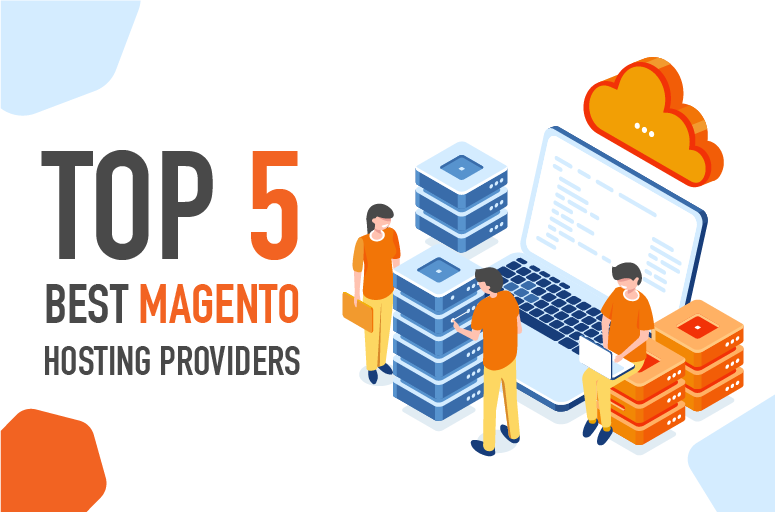Table of Content
- Introduction
- Best Magento Hosting Requirements for your Online Store
- Memory
- Operating System
- Web Servers
- Database
- PHP Versions and Extensions
- Cache Support
- Elasticsearch
- Security
- SSL Certificate
- System Dependencies
- Cache Technologies
- Performance and Uptime
- Conclusion
Introduction
After creating your Magento eCommerce store, the next step is to find the most optimal server to host it on.
The first step is asking questions. What is your target market? Who are your customers? How many items are you planning to sell? These are essential considerations when selecting a host. If you want to open your store with many products, you must choose an optimal server.
I would recommend managed cloud hosting services for those not interested in learning about major server-related technologies. However, you must also consider your budget. My recommendation is to see your hosting as an investment that will pay you in the long run.
I will discuss what server resources Magento requires and where to locate them in this blog. So read it thoroughly.
Best Magento Hosting Requirements for your Online Store
Various functional fixes and additions are included in Magento version 2.4.4. Magento recommended that you keep your installation up to date as a proactive strategy and best practice so that you may benefit from the newest improvements.
To see optimised speed, securely connect to the Magento software repository, and use PayPal efficiently, you must meet the server requirements (the newest versions of Apache, NGINX, and other caching technologies).
Let’s look at the factors Magento suggests for online stores.
Memory
The greater the number, the better it is. According to Magento, this should be at least 2 GB of RAM.
Operating System
Magento is compatible with Linux x86-64 and distributions such as RedHat Enterprise Linux (RHEL), CentOS, Ubuntu, Debian, etc.
Web Servers
Magento requires Apache 2.4 and NGINX 1.x web servers.
Database
Magento Commerce Cloud projects require MySQL version 8.0 and MariaDB 10.4. Additionally, Magento supports MySQL 5.7.9, MariaDB 10.2, and Percona 5.7. (but since this has not been tested, we cannot officially recommend these).
PHP Version
Magento supports and recommends PHP 7.4.0.
PHP Extensions
The PHP extensions that must be installed are as follows:
- Ext-bcmath
- ext-ctype
- ext-curl
- ext-dom
- ext-gd
- ext-hash
- ext-iconv
- ext-intl
- ext-mbstring
- ext-openssl
- ext-pdo_mysql
- ext-simplexml
- ext-soap
- ext-xsl
- ext-zip
Cache Support
For optimal speed, Magento strongly advises that you enable OPCache.
It’s also crucial to access PHP OPcache and PHP settings (such as memory limit). You must include the appropriate PHP extensions. Elasticsearch 7.6+ (for Magento 2.4+) and RabbitMQ 3.8 are two technologies to look for.
Make sure the hosting company has the appropriate technology stack for Magento. Your site may crash or become unresponsive if you don’t use the right stack.
Elasticsearch
Elasticsearch 7.6.x was used to test Magento. 2.x, 5.x, and 6.x are no longer supported.
Security
Many workloads come with Magento security. You must apply security patches, conduct scans, enable two-factor authentication, and so on.
Because Magento is open-source, anyone can look at the code. Hackers can find security loopholes. It makes it more vulnerable to cyber-attacks. A shaky website can cause data leaks.
A competent hosting provider will prioritise Magento security. They’ll be in charge of server-side security.
SSL Certificate
The Magento store requires a valid and trusted SSL certificate. You can use Let’s Encrypt to get a free SSL certificate.
System Dependencies
These are some required system dependencies for Magento stores.
- bash
- gzip
- lsof
- MySQL
- mysqldump
- nice
- php
- sed
- tar
Cache Technologies
Magento recommends that developers use Varnish 6.x (tested with 6.3.1), Redis 5.0 for page caching and session storage, and RabbitMQ 3.8.x with their respective versions.
As previously said, this article discusses Magento server requirements and how to meet them. Now that we’ve completed the first let’s go on to the second half.
Performance and Uptime
The user experience and customer loyalty are both affected by a slow website. When the page loading time increases from 1 to 5 seconds, the bounce rate rises to 90%.
You must have a fast-loading site in the competitive eCommerce business.
The website should be able to handle increased traffic. The hosting provider should perform performance optimization and numerous adjustments. As a result, your website will be able to handle traffic spikes.
Conclusion
There is no doubt that Magento has a solid architecture designed to handle some of the most challenging eCommerce store operations. Thousands of individuals use Magento to build an eCommerce store; however, they are frequently disappointed when they cannot maintain their store’s performance. Most of the time, performance difficulties arise when server requirements are not met. This blog post was for you to select the best for your online store.







